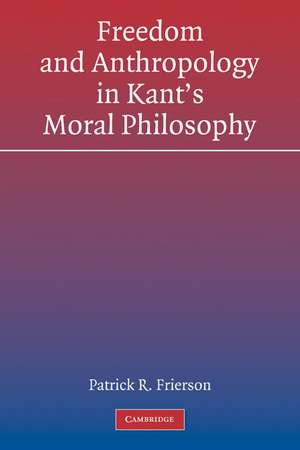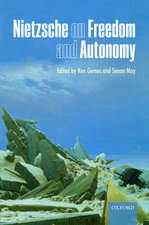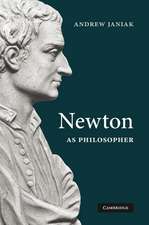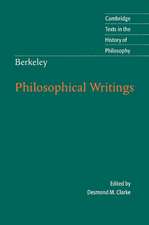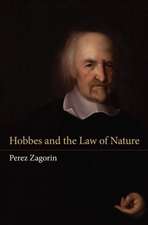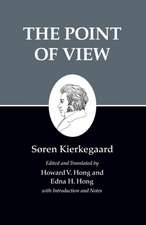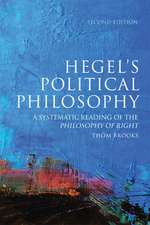Freedom and Anthropology in Kant's Moral Philosophy
Autor Patrick R. Friersonen Limba Engleză Paperback – 16 feb 2011
| Toate formatele și edițiile | Preț | Express |
|---|---|---|
| Paperback (1) | 332.83 lei 43-57 zile | |
| Cambridge University Press – 16 feb 2011 | 332.83 lei 43-57 zile | |
| Hardback (1) | 690.80 lei 43-57 zile | |
| Cambridge University Press – 20 iul 2003 | 690.80 lei 43-57 zile |
Preț: 332.83 lei
Nou
Puncte Express: 499
Preț estimativ în valută:
63.69€ • 66.67$ • 52.70£
63.69€ • 66.67$ • 52.70£
Carte tipărită la comandă
Livrare economică 07-21 aprilie
Preluare comenzi: 021 569.72.76
Specificații
ISBN-13: 9780521184359
ISBN-10: 0521184355
Pagini: 222
Dimensiuni: 152 x 229 x 13 mm
Greutate: 0.33 kg
Editura: Cambridge University Press
Colecția Cambridge University Press
Locul publicării:New York, United States
ISBN-10: 0521184355
Pagini: 222
Dimensiuni: 152 x 229 x 13 mm
Greutate: 0.33 kg
Editura: Cambridge University Press
Colecția Cambridge University Press
Locul publicării:New York, United States
Cuprins
Introduction: Kant's anthropology and Schleiermacher's dilemma; Part I. The Problem: 1. The asymmetry in Kant's conception of freedom; 2. Anthropology as an empirical science; 3. The moral significance of Kant's 'pragmatic anthropology'; 4. Moral anthropology in contemporary neokantian ethics; Part II. The Solution: 5. Transcendental evil, radical evil, and moral anthropology; 6. Moral influence on others; Epilogue. Incorporating moral anthropology and defending Kantian moral philosophy.
Recenzii
Review of the hardback: 'Many recent works insist upon the importance of anthropology in Kant's thought: Frierson is the first to grasp fully and address directly the central problem posed by anthropology for Kant's metaphysically and morally robust account of moral freedom...This is a work that students on Kant's ethics will find instructive and stimulating, and that future studies of Kant's anthropology will have to contend with.' Susan Shell, Boston College
Review of the hardback: '… this book will be of considerable value to students of Kant's philosophy of religion… Much has been written on these topics in recent years, but Frierson managed to bring a fresh pair of eyes to them and to raise a series of penetrating questions about the interpretation and coherence of Kant's account.' Journal of Religious Studies
Review of the hardback: '… this book will be of considerable value to students of Kant's philosophy of religion… Much has been written on these topics in recent years, but Frierson managed to bring a fresh pair of eyes to them and to raise a series of penetrating questions about the interpretation and coherence of Kant's account.' Journal of Religious Studies
Descriere
A comprehensive account of Kant's theory of freedom and his moral anthropology.
